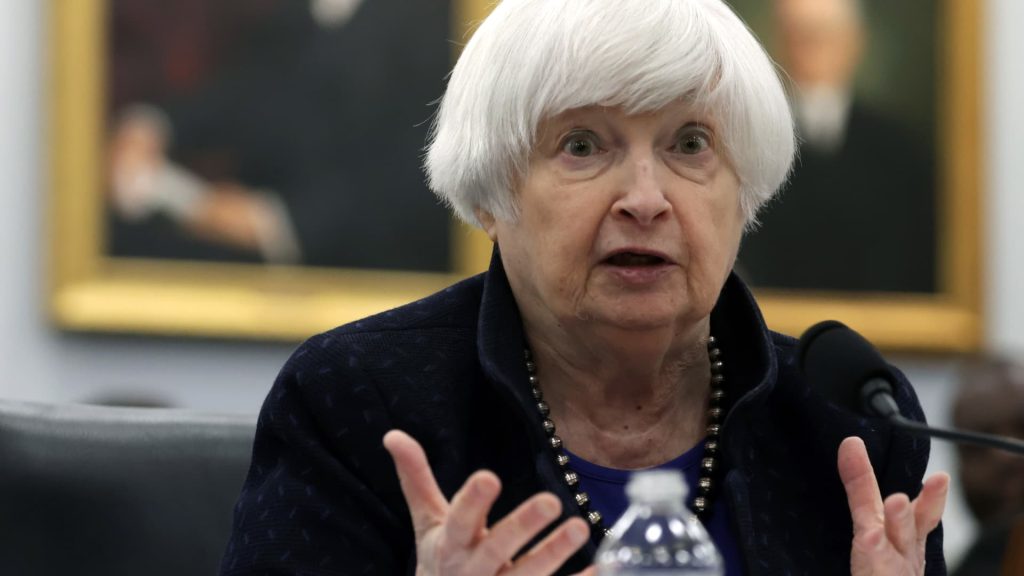Treasury Secretary Janet Yellen has raised concerns about China treating the global economy as a dumping ground for its excess clean energy products, which depresses market prices and harms green manufacturing in the U.S. China’s surplus of solar power, electric vehicles, and lithium-ion batteries allows them to sell these goods at lower prices, undermining the competitiveness of American and global firms in these industries. Yellen plans to address these trade practices with Chinese officials during an upcoming visit to China and emphasize the need for action to rectify the situation. The Biden administration has been investing in clean energy industries domestically to catch up to China’s lead in the energy transition but faces challenges due to China’s significant investments over the years.
While the Biden administration is making efforts to boost the clean energy industry through investments like the 2022 Inflation Reduction Act, China continues to outpace the world in the energy transition. Yellen highlighted that the influx of Chinese clean energy products into the global market distorts prices and poses a threat to supply chains in these sectors. President Biden is committed to protecting American industries from unfair competition and addressing the challenges posed by China’s dominating presence in the clean energy market. Despite these efforts, the Chinese Embassy in Washington did not immediately respond to requests for comment on the issue, indicating ongoing tension in U.S.-China trade relations.
The U.S.-China trade tensions have been ongoing, with President Biden’s recent meetings with Chinese President Xi Jinping as part of efforts to improve relations. However, challenges persist, such as cybersecurity concerns and trade disputes, including the investigation launched by Biden into Chinese smart cars in February. The U.S. government has raised national security concerns about Chinese vehicles flooding the American market and connecting to U.S. infrastructure, posing potential risks. Former President Donald Trump has also indicated plans to reinstate significant tariff levels on Chinese products if he wins a second presidential term, further complicating the situation between the two countries.
Yellen’s remarks underscore the broader geopolitical and economic challenges posed by China’s dominance in the clean energy market and its impact on global trade dynamics. As the U.S. seeks to strengthen its domestic clean energy industry through investments and legislation, it must also navigate the competitive landscape shaped by China’s significant investments and trade practices. Yellen’s upcoming discussions with Chinese officials during her visit to China signal the importance of addressing these issues and finding solutions to ensure fair competition and market access for American firms in the evolving global clean energy sector. The complex interplay between economic interests, national security concerns, and geopolitical tensions underscores the multifaceted nature of the U.S.-China trade relationship.















